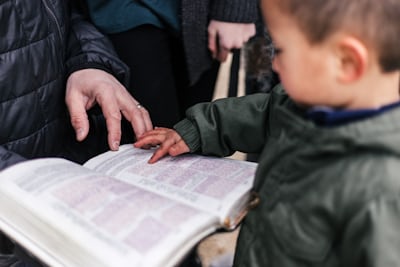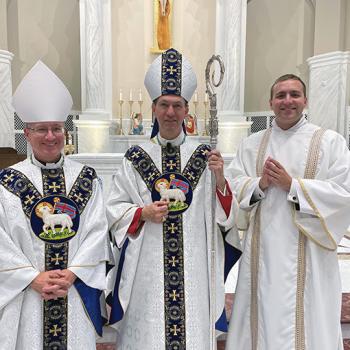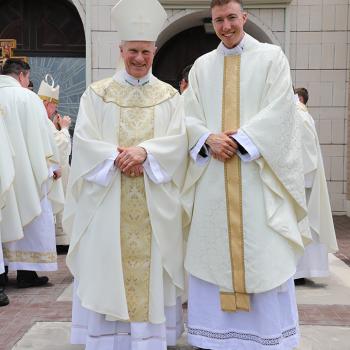I have been called many things in my life: a good soldier, a solid worker, a model employee, and even a good husband. Those things are great and admirable, but they fail in comparison to my favorite title: dad. The Lord has blessed my wife and I with four awesome children, but with raising children goes much responsibility.
You are probably thinking that I’m stating the obvious. After all, as parents we have to feed, clothe, and provide shelter for our family. These are great responsibilities and should not be minimized, but there is another enormous responsibility not on the above list. As parents we are also called to catechize our children.
Photo by Priscilla Du Preez on Unsplash
Catechizing is Tough
Let’s be honest about something: the Church is losing young people in droves. I was recently listening to the Word on Fire podcast, and in that episode Bishop Barron said that for every person that enters the Church there are six who leave.
Why would someone leave the truth? The answer is quite simple: they leave because they do not know what the truth is. A majority of those who leave the Church do so because they have not been taught what the Church believes, and their questions have not been answered.
There are always exceptions, but it comes down to catechesis. In my time as a catechist I have heard familiar comment from parents, “Teaching about the faith is your job. I don’t know where to begin.” The purpose of this article is to give some guidance on where to start.
Teach Your Children about the Mass
The first step in catechizing children is to take them to Mass. I had seventeen students in my first year as a catechist, and only six of them went to Mass on a weekly basis. The catechism calls parents the primary teachers of the faith, and this is also reiterated in scripture several times. Children look to us parents as an example, and if the Church is not important to us, it will very likely not be important to them either.
When you are at Mass, explain to your children what is going on. Tell them how much scripture the Mass contains, why the priest says what he does during the consecration, and how the Mass is a foretaste of the wedding supper of the Lamb that takes place in heaven while we offer Mass here below. There is no filler in Mass – everything is important. The more children know, the more they will become engaged.
We are living in an unprecedented time. Public Mass is currently suspended in most dioceses of the United States. Many priests and dioceses have taken it upon themselves to livestream their private Masses for our benefit. This is beneficial for all of us because the Mass is still happening. You can also find many of these Masses on YouTube, or you can record them from EWTN. This gives the added benefit of pausing to discuss the different aspects of the Mass.
Pray with Your Children
I have not always been very good at this step. I had the standard objections: “It’s too late” or “I’m too busy.” One evening I said good night to my son, and he said, “I would really like for you to pray with me before bed.” I learned something extremely important that night. Your children want you to pray with them. In doing so you become an example of what prayer is to them.
Is teaching prayer a priority or something you do in a passive way? If it is a priority for you then chances are it will be a priority for them too. In establishing a strong prayer life they, and we, understand more clearly just how much Christ loves us.
But remember that it is impossible to establish a strong relationship without dialogue. It is the same with prayer. There is no communion without dialogue. Prayer helps us establish a stronger bond with God, and that is something we desperately need to teach our children. We can talk about prayer until we are blue in the face, but there is no substitute for showing them how to do it. The more we show it, the more we’ll talk about its importance. As a result, our relationship with God will grow as will our relationship with our children.
In this uncertain time, ask your children if they have any prayer requests. They will chime in, and you can pray directly for their needs, their concerns, and those of their friends. You may also be surprised at what you learn about their lives when you do that.
Read Sacred Scripture with Your Children
Reading scripture with our children may seem like a given, but we must ask ourselves if we are doing it enough. When I say read scripture, I mean picking up the bible and reading it. This isn’t to say that children’s bibles and picture bibles can’t play an important role, but they should be complementary resources.
This will help children develop a deep love and appreciation for sacred scripture. This, in turn, will lead to more questions about the faith that we can answer. This will show the biblical basis for the Catholic faith and will help them withstand those anti-Catholic objections that will come in the future. When answering these questions, it is also important to be honest. If our children ask a question we do not know the answer to, it’s important to admit that. Then research it and come back with an answer.
There is no better time than the present to strengthen our commitment to scripture reading. This will replace a part of the screen time most children are getting while school is out. Teach them that the scriptures are love letters from God; this will underscore how important they are to our faith.
Conclusion
These three items are only a few of the many things you can do to teach your children the faith in these crazy times. Take the time and make a plan. The faith doesn’t stop, and it is our responsibility as parents to pass it on. We are being forced to slow down, and that’s a good thing. Let’s take advantage of this opportunity to teach our children about Christ and His Church.














